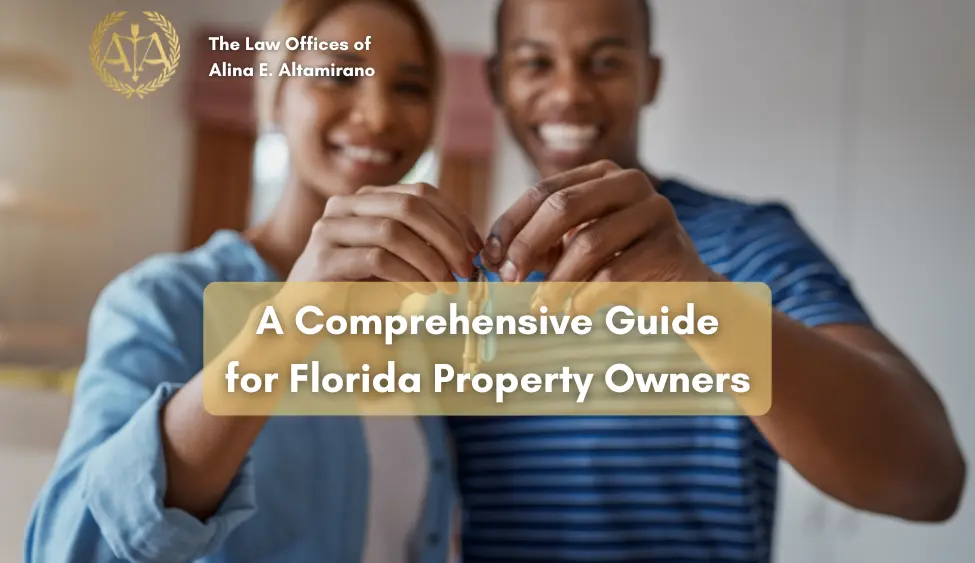When buying or selling real estate in Florida, resolving any disputes related to the title is crucial to ensure a smooth and legally sound transaction. A title represents ownership of a property, and any defects or disputes involving that title can prevent the sale or transfer from moving forward. Title disputes can arise from various issues, such as unpaid liens, boundary disagreements, or unclear ownership claims.
This guide will walk you through common title issues, how to resolve them, and the importance of seeking professional legal help in such situations.
Common Title Issues
Title disputes can be stressful and time-consuming, but understanding the root cause of the dispute is the first step toward resolving it. Here are some of the most common issues that can affect a property’s title in Florida:
- Liens on the Property
One of the most frequent title issues is the presence of a lien on the property. A lien is a legal claim placed on the property as collateral for unpaid debts. These debts may include unpaid property taxes, unpaid contractor fees (mechanic’s liens), or court judgments. If a lien exists, it must be cleared before the property can be sold or refinanced. The most straightforward solution is to pay off the debt associated with the lien. However, disputing the validity of the lien or negotiating a settlement are also options, often requiring the involvement of an experienced real estate attorney.
- Boundary Disputes
Boundary disputes can arise when property lines are unclear or contested. These disputes often occur when neighbors disagree on where one property ends and the other begins. They may be triggered by fences, driveways, or structures that encroach on neighboring land. This can create significant complications during a sale or refinancing. Resolving a boundary dispute often requires a professional land survey to establish the correct property lines. In some cases, mediation or litigation may be necessary to reach an agreement between the parties.
- Unclear Ownership or Title Defects
Title defects occur when there are gaps or errors in the chain of ownership. Examples include clerical errors in public records, undisclosed heirs who claim ownership, or forged signatures on documents. In some cases, a prior owner may have sold the property without full legal authority, creating confusion over who legally owns the property. Addressing title defects can involve conducting a detailed title search to identify issues, followed by filing a “quiet title” action in court to resolve the ownership dispute. This legal proceeding allows the court to determine and establish ownership, effectively clearing up the title.
- Easements and Access Issues
An easement is the right of a third party to use a portion of the property for a specific purpose, such as a utility company needing access to underground power lines or a neighbor using a shared driveway. While easements are usually recorded in public records, disputes can arise if the terms are unclear or if one party misuses the easement. To resolve these issues, the terms of the easement agreement may need to be reviewed, and in some cases, renegotiation or legal intervention may be necessary to clarify the rights and responsibilities of each party involved.
- Errors in Public Records
Even minor clerical or filing errors in public records can cause significant title disputes. For example, a typo in a property description or a mistake in recording a previous transaction can create uncertainty about the ownership of the property. These errors may require correction through legal channels, such as filing a suit to “reform” the deed or correct the record.
Steps to Resolve a Real Estate Title Dispute
While each title dispute is unique, the process for resolving these issues generally follows a series of important steps:
- Conduct a Title Search
A comprehensive title search is the foundation for identifying and resolving title disputes. This search will uncover any liens, defects, or other encumbrances that could affect the property’s ownership. Title searches are typically conducted by title companies, but working with a real estate attorney can ensure the search is thorough and any issues are promptly addressed.
- Consult a Real Estate Attorney
Title disputes often involve complex legal matters that are difficult to resolve without professional assistance. Hiring a skilled real estate attorney with experience in Florida law can be invaluable in navigating the process. Your attorney can assess the severity of the title issue, suggest the best course of action, and represent your interests in negotiations or litigation.
- Negotiate with Involved Parties
In some cases, disputes can be resolved without going to court. Negotiation or mediation can often lead to a settlement that satisfies all parties involved. For example, a lienholder may agree to release the lien if a reduced payment is made, or neighbors may settle a boundary dispute through an informal agreement. This can save both time and money compared to litigation.
- Resolve Liens
If a lien is the cause of the dispute, it must be resolved before the title can be cleared. Options include paying off the debt in full, negotiating a partial settlement with the lienholder, or challenging the validity of the lien in court. Each option comes with its own advantages and risks, so it is essential to consult your attorney before proceeding.
- File a Quiet Title Action
If the title defect involves unclear ownership, filing a “quiet title” action may be necessary. This legal proceeding allows a court to formally declare who holds valid ownership of the property. Once the quiet title action is completed, the title is “quieted,” meaning that any previous claims to the title are eliminated, allowing the current owner to hold clear title to the property.
- Correct Public Record Errors
If the title issue stems from a mistake in the public record, such as a misspelled name or incorrect property description, your attorney may need to file a legal document (such as a corrective deed) to amend the error. This process helps ensure that the title reflects accurate and up-to-date information, avoiding future disputes.
Why Professional Help Matters
Resolving title disputes quickly and effectively is critical to protecting your property rights and ensuring a successful real estate transaction. Trying to handle these disputes on your own can lead to costly delays or even litigation. Working with a knowledgeable real estate attorney ensures that the proper legal steps are taken and that your interests are fully protected throughout the process.
If you’re facing a title dispute in Florida, don’t go through it alone. Our boutique law firm specializes in resolving real estate title disputes, helping you navigate complex legal challenges with ease. Contact us today for a consultation, and let us safeguard your real estate investment.




